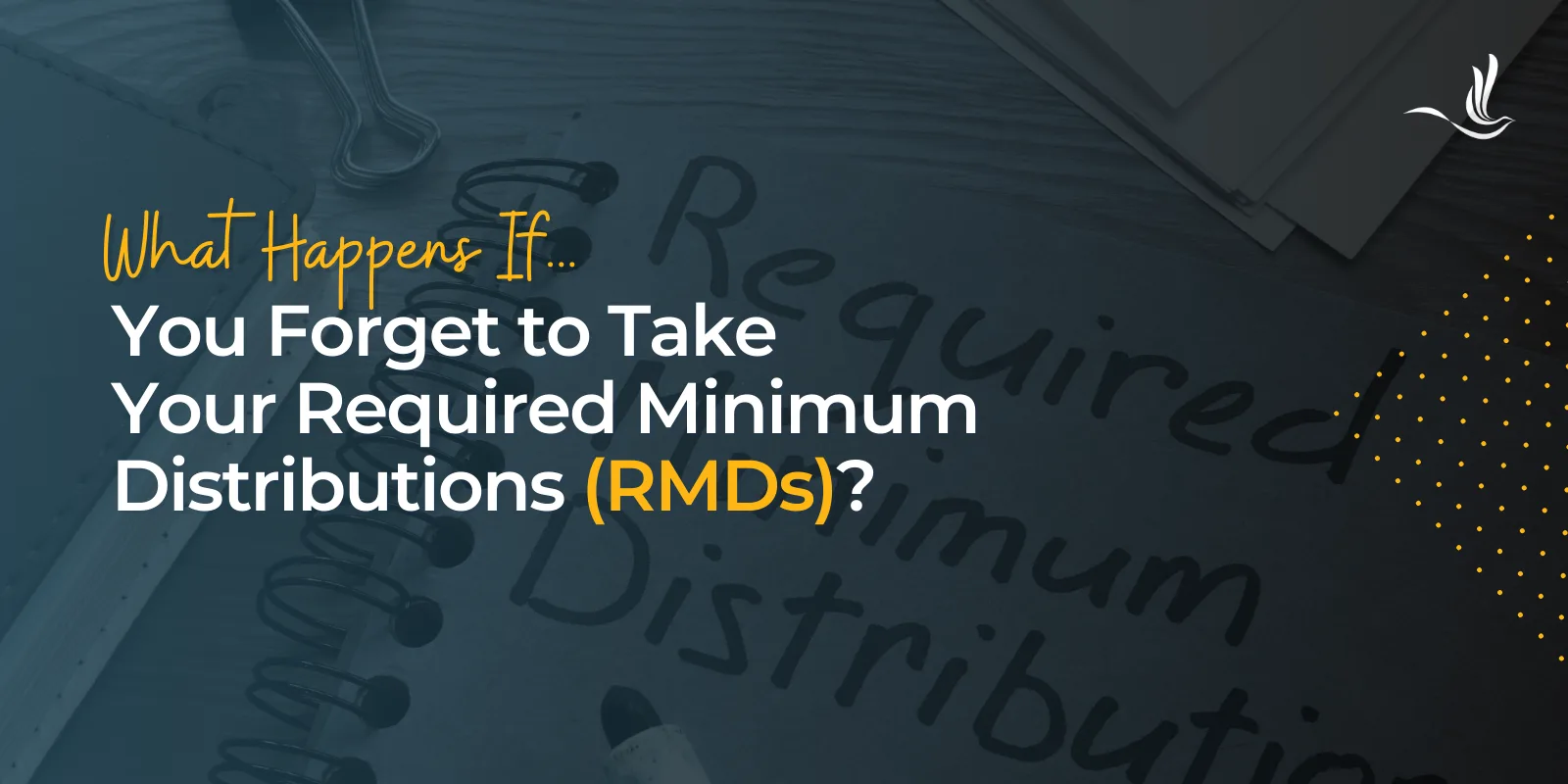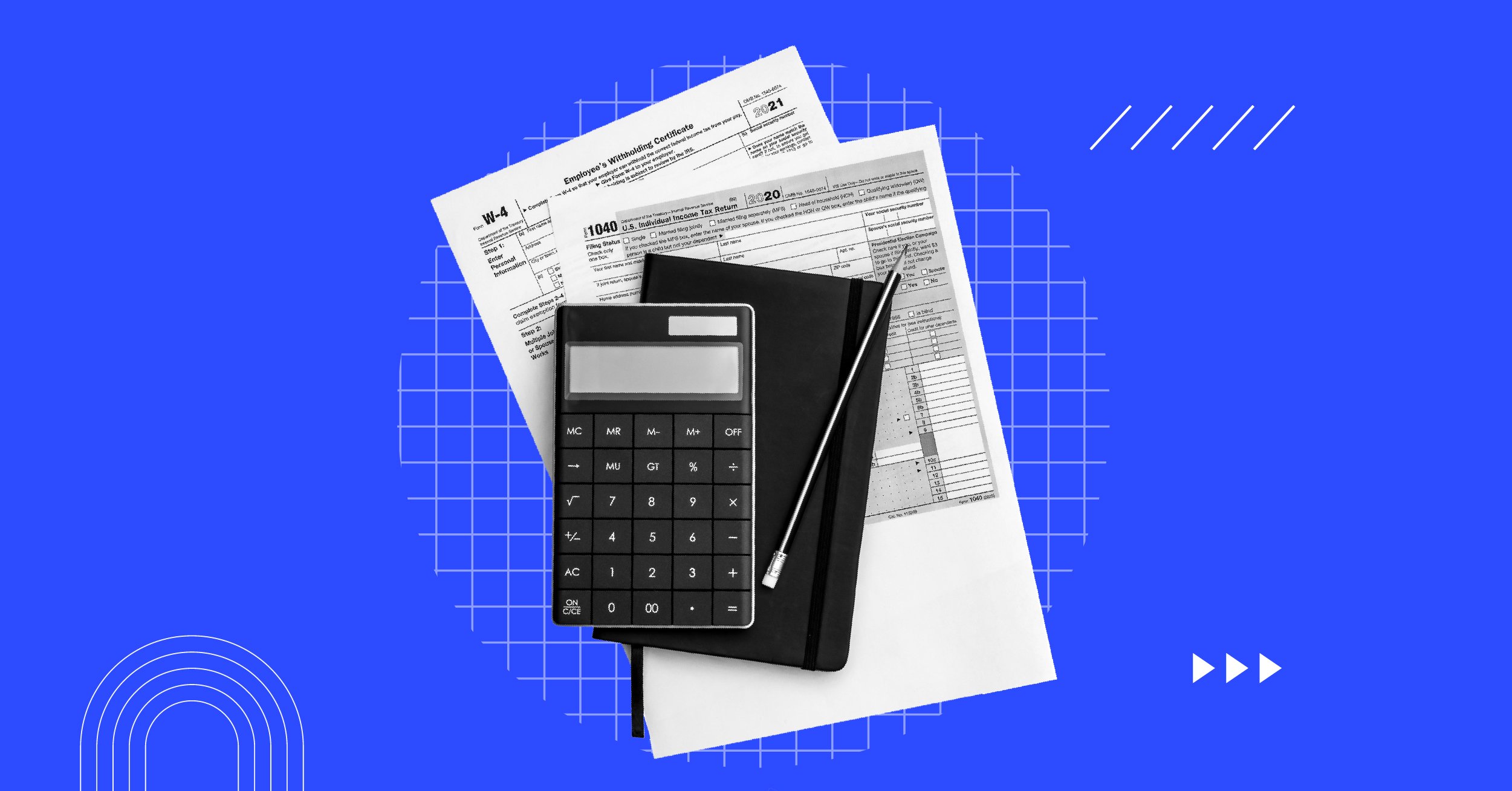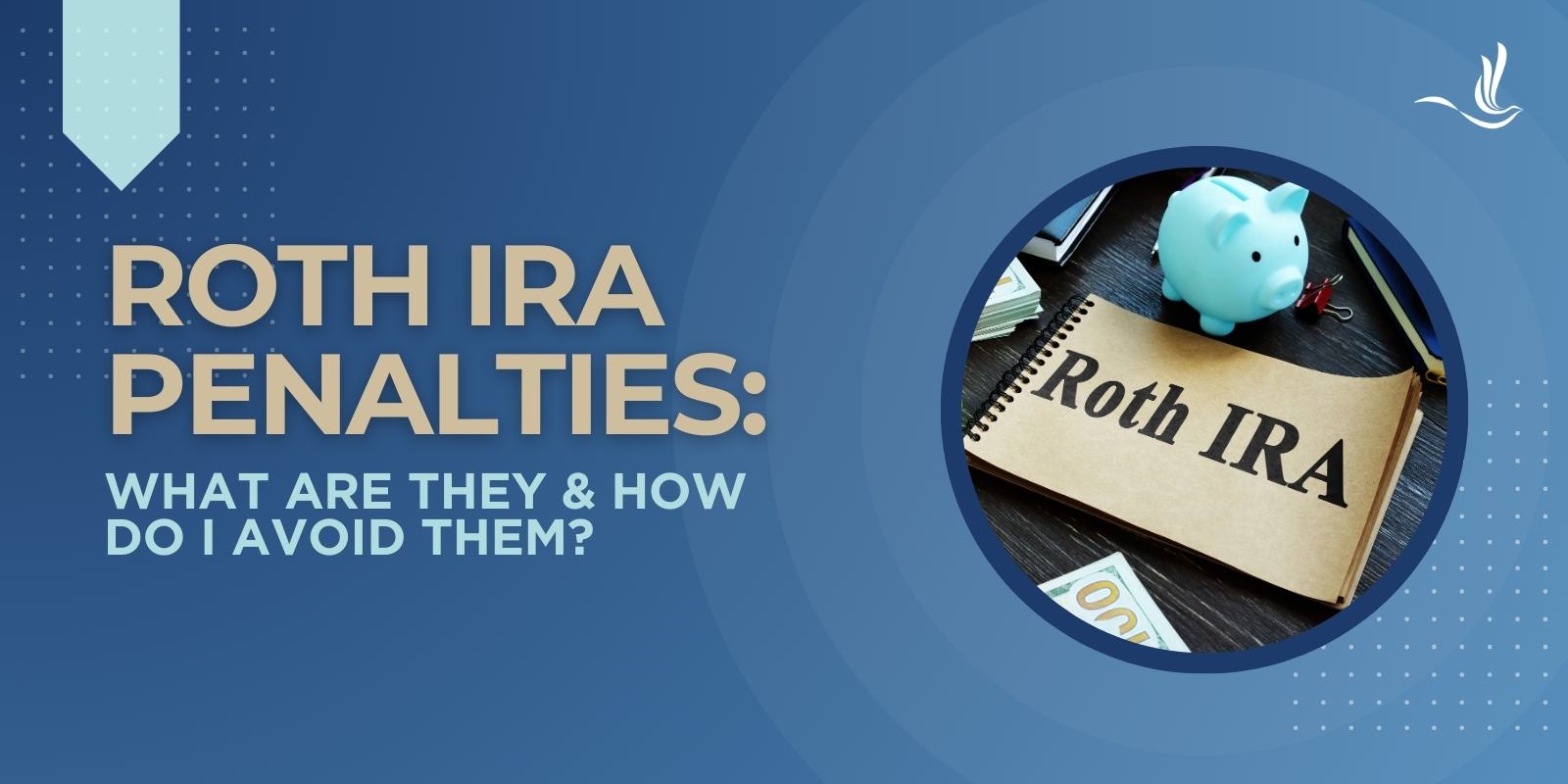Key Takeaways:
Retirement accounts grow tax-deferred, but annual required withdrawals must be taken to avoid penalties.
RMDs apply to most traditional IRAs, 401(k)s, 403(b)s, and other defined contribution plans; Roth IRAs are exempt during the owner’s lifetime but require distributions for beneficiaries.
Calculating RMDs involves dividing your prior year-end account balance by your life expectancy factor from IRS tables.
Missing an RMD can trigger a 25% excise tax, which may be reduced to 10% if corrected promptly with Form 5329 and a waiver request.
Beneficiaries of inherited accounts must follow special rules, including the 10-year rule, and sometimes the 5-year rule, depending on circumstances.
Planning, monitoring accounts, using IRS worksheets, automating withdrawals, and consulting a tax professional can prevent mistakes and optimize tax outcomes.
Retirement accounts are designed to help your savings grow tax-deferred, giving you more flexibility and security in your later years. But even the most carefully planned accounts come with rules you need to follow to avoid unexpected costs. Missing certain required withdrawals can trigger significant penalties. This guide explains how Required Minimum Distributions (RMDs) work, how to calculate them, and what to do if you miss a withdrawal.
Understanding RMD Requirements
Required Minimum Distributions, or RMDs, are the minimum amounts you must withdraw from certain retirement accounts each year once you reach age 73. The IRS created these rules to make sure that money you’ve been saving tax-deferred eventually gets taxed. Missing an RMD can lead to costly penalties, so it’s important to understand how they work.
Accounts That Require RMDs
RMDs apply to most traditional retirement accounts, including:
Traditional IRAs, SEP IRAs, and SIMPLE IRAs
401(k), 403(b), and 457(b) plans
Profit-sharing and other defined contribution plans
Roth IRAs and Designated Roth accounts in employer plans don’t require withdrawals while the owner is alive, but beneficiaries must take RMDs after the account owner passes away. Knowing which accounts are affected helps you avoid accidental missed withdrawals.
Calculating Your RMD
The IRS sets a life expectancy factor for each age to figure out your RMD. To calculate it:
Find your account balance as of December 31 of the previous year.
Divide that balance by the life expectancy factor from the IRS table that applies to you:
Uniform Lifetime Table – for most account owners
Single Life Expectancy Table – for non-spouse beneficiaries
Joint Life and Last Survivor Table – if your spouse is the sole beneficiary and more than 10 years younger
RMD = Account Balance ÷ Life Expectancy Factor
For example, if your IRA balance was $500,000 at the end of last year and your life expectancy factor is 25, your RMD for this year would be $20,000.
Each account usually needs its own calculation. IRAs can often be combined for withdrawal, but 401(k)s and other workplace plans typically require separate distributions.
Tax Considerations
Money withdrawn from these accounts is generally taxed as ordinary income, except for any after-tax contributions or previously taxed amounts. Taking RMDs on time helps avoid IRS penalties and prevents a large spike in your taxes in future years. Roth accounts are usually tax-free, but inherited Roth accounts still follow RMD rules.
Timing of RMDs
Knowing when to take your RMDs is just as important as knowing how much to withdraw. The IRS has strict deadlines and missing them can result in costly penalties.
First RMD: When It’s Due
Your first RMD is due by April 1 of the year after you turn 73. For example, if you turn 73 in 2025, your first RMD must be taken by April 1, 2026. Some people choose to take this first RMD in the same year they turn 73 instead of waiting until April, which can help spread out taxable income over two years.
It’s important to note that the first RMD doesn’t affect later distributions. You’ll still need to take your second RMD by the end of that same year. Proper timing here can help you manage taxes more effectively.
Annual RMDs After the First Year
After your first RMD, all subsequent withdrawals must be completed by December 31 each year. This applies to IRAs, 401(k)s, and other retirement accounts, unless your plan allows specific exceptions. Setting reminders or working with your financial institution can help make sure you don’t miss these deadlines.
Special Rules for Employer Plans
Some 401(k) and other workplace plans let you delay your first RMD until you retire, depending on the plan document. This means you might not need to start withdrawals at 73 if you are still working. Check with your plan administrator to see if this option applies to you.
Consequences of Missing an RMD
Failing to take a Required Minimum Distribution (RMD) on time can have serious financial consequences. The IRS takes missed RMDs seriously because these withdrawals are how tax-deferred retirement savings eventually become taxable. Understanding the penalties and how they work is critical for anyone managing retirement accounts.
The Excise Tax Penalty
If you miss an RMD, the IRS can impose a 25% excise tax on the amount you should have withdrawn. For example, if your RMD was $20,000 and you didn’t take any distribution, you could owe $5,000 in penalties on top of the income taxes due for the withdrawal. This penalty is intentionally steep to encourage compliance.
The good news is that if you correct the mistake promptly, the penalty can sometimes be reduced to 10%. Prompt action shows the IRS that you are trying to follow the rules, which may also open the door for a waiver in certain situations.
Additional Tax Considerations
Missing an RMD doesn’t just trigger penalties; it can also affect your overall tax situation. If you skip a withdrawal, your future RMDs may be larger to make up for the missed amount. This could push you into a higher tax bracket in later years, increasing your total tax burden. It can also affect Social Security taxation, Medicare premiums, and other income-related calculations.
Inherited Accounts
Beneficiaries of inherited IRAs or retirement accounts also face strict RMD rules. If an inherited account’s RMD is missed, the same 25% excise tax can apply. Special rules, like the five-year rule or life-expectancy method, determine how and when beneficiaries must take distributions. Missing these deadlines can be just as costly as for the original account owner.
Steps to Take If You Miss an RMD
Missing a required minimum distribution (RMD) can be stressful, but the IRS provides a clear path to correct the mistake. Acting quickly is crucial to minimize penalties and avoid unnecessary taxes.
1. Confirm the Missed RMD
Before taking action, verify whether the RMD was actually missed. Check your account statements for the year in question, and confirm the RMD amount using the IRS Uniform Lifetime Table or your plan’s provided worksheets. Mistakes often happen when managing multiple accounts, so double-checking can prevent unnecessary penalties.
2. Take the Missed Distribution Immediately
Once confirmed, withdraw the required amount from your retirement account as soon as possible. The IRS encourages quick action, and taking the RMD right away may qualify you for a reduced penalty. Keep detailed records of the withdrawal date and amount.
3. Complete IRS Form 5329
Form 5329 is used to report the missed RMD and calculate the excise tax, which is usually 25% of the shortfall. Completing this form accurately is essential for the IRS to process your correction. If you have multiple accounts or multiple missed RMDs, each must be calculated separately.
4. Request a Waiver for the Penalty
If the missed RMD was due to a reasonable error, you can attach a letter of explanation to Form 5329 and request a waiver. Include details about why the RMD was missed and the steps taken to correct it promptly. The IRS may reduce the penalty to 10% or waive it entirely if it finds your explanation reasonable.
5. Pay Any Remaining Taxes
If the IRS denies the waiver request, pay the excise tax immediately to avoid further penalties. Include the payment with Form 5329 and your federal tax return, or follow the instructions if filing separately.
Rules for Beneficiaries of Inherited Retirement Accounts
When someone inherits a retirement account, they must follow required minimum distribution (RMD) rules. A beneficiary is anyone the account owner chooses to receive the account’s benefits after their death. Beneficiaries can be individuals, like a spouse or child, or entities, such as a trust, depending on the plan. Correctly designating beneficiaries is important to make sure the money is distributed properly.
General Rules for Beneficiaries
Beneficiaries can usually take the inherited account as a lump-sum distribution, though this could trigger a large tax bill. All distributions are generally included in taxable income, except for certain inherited Roth IRAs, which may remain tax-free. How RMDs are calculated depends on several factors:
Whether the account owner died before or after their required beginning date
Whether the death occurred before or after 2019 (SECURE Act changes apply for deaths in 2020 or later)
The beneficiary’s relationship to the account owner
Spouse Beneficiaries
Spouses have the most flexibility. If the account owner dies before starting RMDs, the surviving spouse can:
Keep the account as an inherited IRA
Delay withdrawals until the year they turn 72
Take distributions based on their own life expectancy
Follow the 10-year rule
Roll the account into their own IRA
If the account owner dies after starting RMDs, the spouse can either take distributions based on their life expectancy or roll the account into their own IRA.
Non-Spouse Beneficiaries
Non-spouse beneficiaries include adult children, siblings, or other individuals. They are split into two groups. Eligible designated beneficiaries (spouses, minor children, disabled or chronically ill individuals, or those not more than 10 years younger than the account owner) can:
Take distributions over the longer of their own life expectancy or the account owner’s remaining life expectancy
Follow the 10-year rule if the owner died before their required beginning date
Other beneficiaries must generally follow the 10-year rule, withdrawing the full account by the end of the tenth year after the owner’s death.
What Is the 10-Year Rule?
The 10-year rule means a beneficiary does not have to take annual distributions, but the entire inherited account must be emptied by the end of the tenth year after the account owner’s death. This rule replaced the older 5-year rule for many beneficiaries under the SECURE Act.
What About the 5-Year Rule?
The 5-year rule still applies in limited cases, such as when the account owner died before their required beginning date and the beneficiary does not fall into the SECURE Act categories. Under the 5-year rule, the beneficiary must withdraw the entire account by the end of the fifth year following the owner’s death. No annual withdrawals are required before that fifth year, but the account must be empty by the deadline.
Inherited Roth IRAs and Qualified Plans
Inherited Roth IRAs follow similar RMD rules. Contributions are tax-free, and earnings are usually tax-free if the Roth has been open for at least five years. Qualified plans, like 401(k)s, may have additional rules. Spouses often have more options than non-spouses, so it’s important to check with the plan administrator.
Other Special Considerations
When managing required minimum distributions (RMDs), there are a few additional factors that can affect how and when you withdraw from your accounts.
Multiple Retirement Accounts
If you have more than one retirement account, RMDs must be calculated for each account type separately. For example, each IRA, whether traditional, SEP, or SIMPLE, requires its own RMD calculation. However, you are allowed to aggregate the total RMD from all IRAs and take the combined distribution from one or more of them.
Other retirement plans, such as 401(k)s, 403(b)s, and 457(b)s, generally require separate RMDs for each plan. This means you cannot combine distributions across these types of accounts. Knowing which accounts can be aggregated and which must be handled individually helps avoid missed RMDs and unnecessary penalties.
Roth Accounts
While Roth IRAs do not require RMDs during the account owner’s lifetime, beneficiaries of Roth IRAs or designated Roth accounts in 401(k) or 403(b) plans are subject to RMD rules. Withdrawals from inherited Roth accounts are generally tax-free if the account has been open for at least five years, making them a tax-efficient way to meet RMD requirements.
Withdrawals Above the RMD
You are always allowed to withdraw more than the minimum required amount from your retirement accounts. Taking extra distributions can be helpful for managing taxes in high-income years or for meeting cash flow needs, but it does not reduce future RMDs. Planning carefully is key to ensuring that additional withdrawals align with your overall tax strategy.
Automatic Withdrawal Options
Many financial institutions offer automatic RMD withdrawals, which can help ensure you don’t miss the deadline. These services calculate your RMD each year and distribute it on a set schedule, providing peace of mind and reducing the risk of errors. If you have multiple accounts, you may need to set up automatic withdrawals for each one individually.
Preventive Measures
Staying on top of RMDs is essential to avoid costly penalties and maintain tax compliance.
Monitor Your Accounts Regularly
Keep track of all your retirement accounts, including IRAs, 401(k)s, and 403(b)s. Checking account balances at the end of each year is important because RMDs are calculated based on the prior year’s balance. If you have multiple accounts, make a note of which ones allow aggregation and which require separate withdrawals. Regular monitoring helps prevent oversights and ensures accurate calculations.
Use IRS Worksheets and Custodian Notifications
The IRS provides worksheets and tables, like the Uniform Lifetime Table, to help determine your RMD each year. Many account custodians also notify you of your required withdrawal amount and provide helpful reminders. Leveraging both IRS resources and custodian alerts can reduce the risk of missing a distribution.
Plan and Automate
Planning ahead is key. Consider scheduling your RMDs early in the year or using automatic withdrawals offered by many financial institutions. Automation ensures distributions are taken on time, which is especially helpful for individuals managing multiple accounts or complicated beneficiary arrangements.
Frequently Asked Questions
What is the biggest RMD mistake?
The most common mistake is missing the required withdrawal entirely, which can trigger steep IRS penalties and increase future tax burdens.
How does the IRS know if you took your RMD?
Financial institutions report retirement account distributions to the IRS on Form 1099-R, which allows the IRS to track whether required minimum distributions were taken.
What is the fine for not taking an RMD?
Failing to take an RMD can result in a 25% excise tax on the amount that should have been withdrawn, which can sometimes be reduced to 10% if corrected promptly.
How do you correct a missed RMD?
To correct a missed RMD, withdraw the required amount immediately, file IRS Form 5329, and submit a waiver request explaining the mistake to potentially reduce or eliminate penalties.
How do RMDs affect Social Security?
RMDs count as taxable income, which can increase the portion of Social Security benefits subject to federal taxes and may affect Medicare premiums.
How much federal tax should be withheld from RMD?
Federal tax withholding on RMDs is optional but can be set at a flat percentage, like 10%, or based on your estimated tax bracket to help avoid underpayment penalties.
Tax Help with RMDs
Missing a required minimum distribution can lead to significant penalties and tax complications. Monitoring your accounts, using IRS worksheets, setting up automatic withdrawals, and planning ahead are key strategies for avoiding mistakes. Whether you manage multiple accounts, have inherited retirement funds, or want to optimize your withdrawals, staying informed and proactive is essential. Consulting a professional tax advisor or financial planner ensures your distributions are accurate, timely, and tax-efficient. Optima Tax Relief is the nation’s leading tax resolution firm with over $3 billion in resolved tax liabilities.
If You Need Tax Help, Contact Us Today for a Free Consultation

























